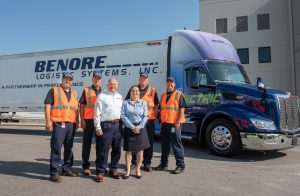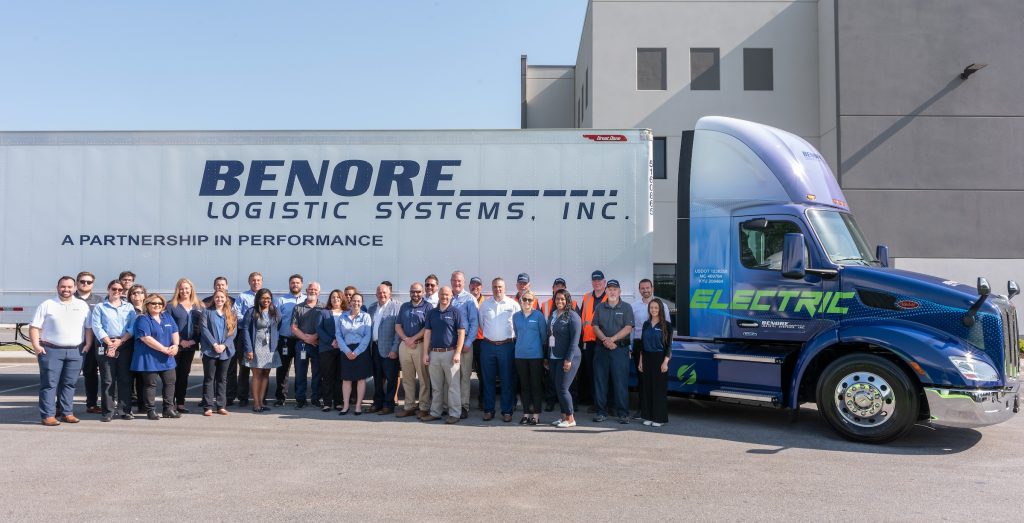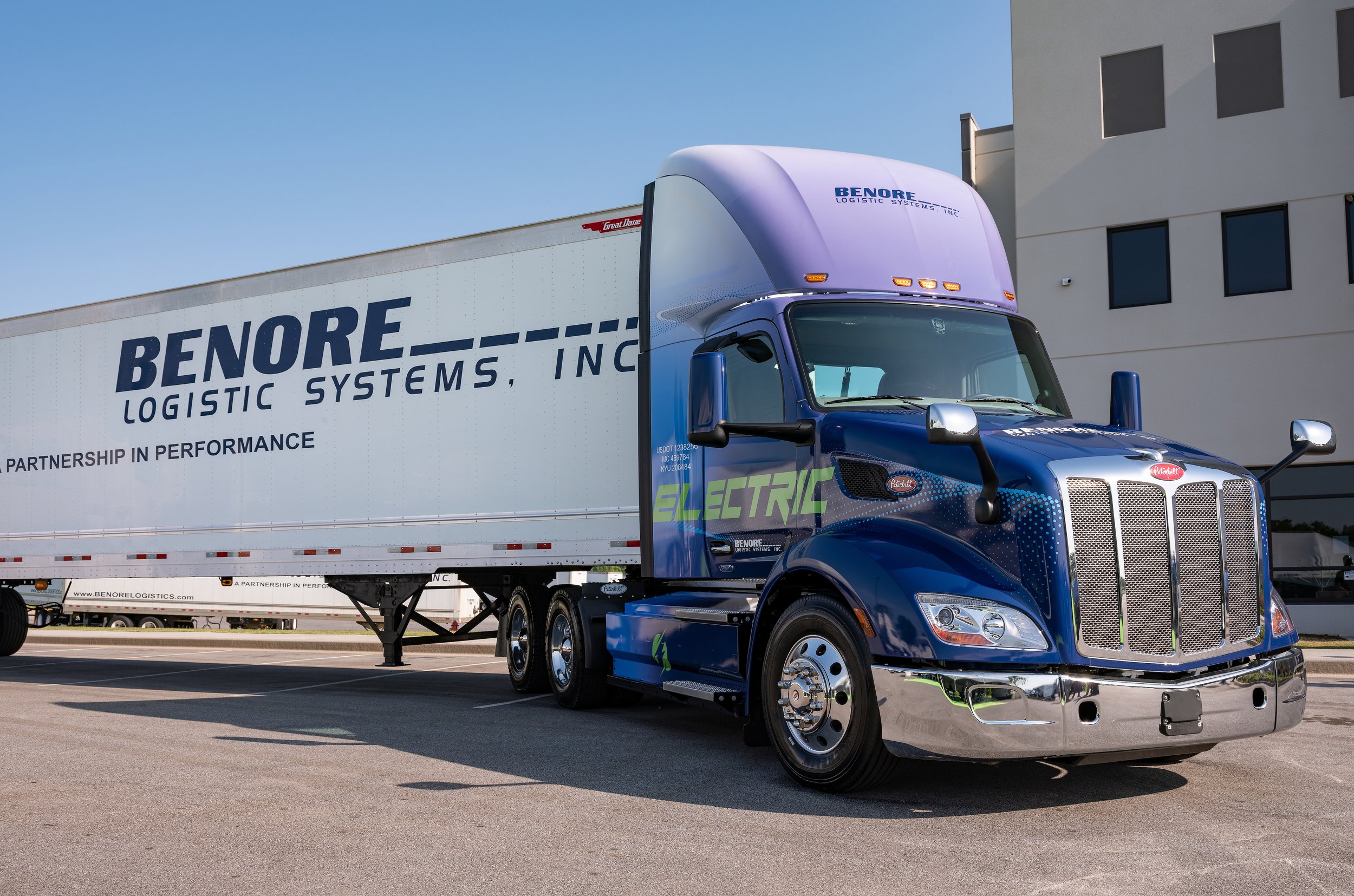Benore studying electric trucks, gathering data to see how it can turn EV operations into reality

Benore Studying Electric Trucks – Family owned and operated Benore Logistic Systems is gathering data this spring to see how it can turn EV operations into reality in the Southeast.
For most truckload carriers operating outside of California, the potential of battery-electric, heavy-duty trucks is theoretical.
Family owned and operated Benore Logistic Systems is gathering data this spring to see how it can turn electric vehicle (EV) operations into reality in the Southeast.
A Peterbilt Model 579EV hauled its first load from Benore’s Greer, S.C., location on April 28. Benore is on a 10-year mission to cut its carbon emissions in half. That mission could include dozens of more heavy-duty EVs, but the future has started with just one.
The fleet said it is the first carrier to add a Class 8 battery-electric vehicle to its South Carolina regional fleet operations. Peterbilt parent-company Paccar also installed a 150kW fast-charger at the Greer terminal.
Based in Erie, Mich., Benore operates in the Midwest, on the East Coast and in the Southeast. The fleet delivers parts from automotive suppliers to automotive manufacturers.
“We have a lot of short-haul routes per truckload – we can go 20 times a day back and forth, picking up parts on a five to 10-mile route,” said Dennis Kunz, the carrier’s vice president of revenue strategy and operation development. “This creates an ideal scenario for these battery-electric (BEV) trucks.”
Enjoying our insights?
Subscribe to our newsletter to keep up with the latest industry trends and developments.
Stay Informed

Based in Erie, Mich., Benore operates in the Midwest, on the East Coast and in the Southeast. The fleet delivers parts from automotive suppliers to automotive manufacturers.
An opportunity to offer EV hauls
While he can’t see a Class 8 BEV working into long-haul operations, Kunz said these short, repetitive routes could be ideal.
“We’re going in and out so many times – and we probably would have some dwell time between loads that we could opportunity-charge the tractor and really utilize this product almost in a constant environment,” he said.
Along with a vehicle charger at its Greer location, Benore had a charger installed at one of its customer’s locations to create another opportunity to charge the Peterbilt tractor until its next trailer is ready.
“We may never get out of that 20% to 70% battery charge level by opportunity charging during the 10 to 15 minutes between loads, during a 15-minute break, having 15 minutes for breakfast, having 30 minutes for lunch,” Kunz said. “That may be enough to keep the tractor going for 24 hours — and that’s what we’re looking for.”
This first EV will be used to analyze how it operates with various loads before the fleet adds more zero-emission trucks, Kunz said. Along with testing out the range – Peterbilt advertises as many as 150 miles on a full charge – Benore also plans to review how speed, length of route, terrain, and idle time affect the battery power. Over the next month, the fleet will run the 579EV on the same route for five to 10 days before tackling a different lane.
Based on the 150-mile battery range of the 579EVs, Kunz said he could see up 30 more of the Class 8 tractors in his fleet.
“We don’t have the infrastructure to do it yet,” he added. “But just from a mileage and range perspective, anything within a 20-mile radius, we could have up to 30 battery-electric trucks support it today.”
Benore Studying Electric Trucks – Benore was able to use grants to support its EV exploration. But Kunz notes that an electric vehicle costs a lot more than a diesel tractor.
Benore was able to use grants to support its EV exploration. But Kunz notes that an electric vehicle costs a lot more than a diesel tractor. And while maintenance is expected to cost less for the new technology and energy costs are more stable for electric vehicles than diesel trucks, the carrier still needs that data to know its potential and limitations.
“We are very honored to bring the first electric truck to the state of South Carolina, supporting our sustainability goals of reducing carbon emissions and making the world a better place for future generations,” said Jeffery Benore, the fleet’s chief executive and president.




















